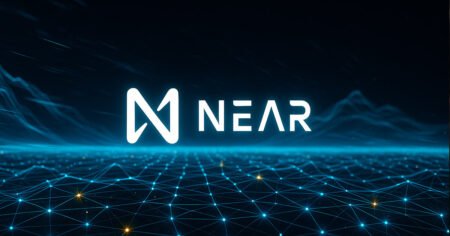DeltaPrime, a decentralized finance (DeFi) protocol operating on the Arbitrum network, recently experienced a security breach reported by the blockchain security company Cyvers. The initial loss was estimated to be four and a half million dollars, but it was later confirmed that 5.93 million dollars were transferred to a suspicious address from DeltaPrime’s DeFi liquidity pools. This incident is the latest in a series of DeFi hacks that have rocked the crypto industry in recent months.
Cyvers reported multiple suspicious transactions on the ARB chain related to DeltaPrime, indicating that the administrator of the protocol’s system lost control of the personal secret key necessary to access the smart contracts on the platform. This allowed the intruder to manipulate the proxy smart contract and exploit it for financial gain. As a result, several of DeltaPrime’s DeFi liquidity pools, including DPUSDC, DPARB, and DPBTCb, suffered losses, with assets being transferred to a suspicious address that began exchanging USDC tokens for Ethereum (ETH).
The hack of DeltaPrime’s DeFi protocol comes on the heels of similar incidents in the DeFi space, such as the disappearance of nearly 11 million dollars from the Li.Fi project in mid-July and the theft of an additional fifteen million dollars from the cross-chain gaming bridge Ronin in August. In response to the Ronin hack, Norwegian authorities were able to freeze assets related to the theft totaling $5.7 million, providing a sense of closure and accountability to the affected communities within the Axie and Ronin ecosystems. Despite this positive development, there is still a strong demand for more information regarding the return of the stolen assets and the ongoing security challenges in the DeFi sector.
In the wake of the ongoing DeFi hacks, investors and users are growing increasingly concerned about the security of these protocols and the potential risks involved in participating in decentralized finance. The incidents involving DeltaPrime, Li.Fi, and Ronin highlight the vulnerability of DeFi platforms to malicious actors and the importance of robust security measures to protect users’ funds. As the crypto industry continues to evolve and innovate, it is crucial for developers, investors, and regulators to work together to address these security challenges and ensure the long-term viability of decentralized finance.
The latest hack on DeltaPrime’s DeFi protocol serves as a grim reminder of the risks associated with using decentralized financial services and the need for enhanced security mechanisms to prevent future exploits. The crypto community must remain vigilant and proactive in identifying and addressing vulnerabilities in DeFi platforms to protect users and uphold the integrity of the ecosystem. By promoting transparency, accountability, and best practices in the DeFi space, stakeholders can mitigate risks and build trust among investors and users in the emerging digital economy.
In conclusion, the recent security breach on DeltaPrime’s DeFi protocol underscores the urgent need for improved security measures and regulatory oversight in the DeFi space. As the crypto industry continues to grow and attract more users, ensuring the safety of funds and protecting against malicious attacks is paramount. By learning from past incidents and implementing robust security protocols, the DeFi sector can strengthen its reputation and credibility, paving the way for sustainable growth and adoption in the wider financial ecosystem.

















